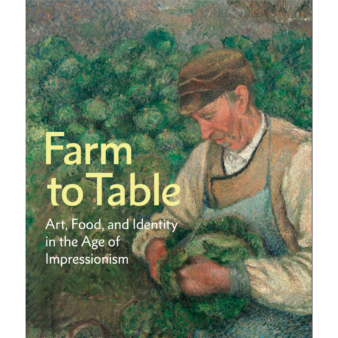Overview
At the end of the nineteenth century, artists such as Claude Monet, Eva Gonzalès, and Paul Gauguin took as their subject France’s relationship with food. The country’s bountiful agriculture and the skill of its chefs had long helped to define its strength and position on the international stage. This self-image as the world’s culinary capital only grew as the country grappled with war, political instability, imperialism, and industrialization. France’s culinary traditions signaled notions of its refinement, fortitude, and ingenuity, yet they also exposed fractures. From cultivation to consumption, food was central to notions of glory but also to those of collective pain. For artists committed to depicting daily circumstances, food was a natural subject, simultaneously quotidian and indicative of the state of the nation.
Accompanying the traveling exhibition of the same name, Farm to Table showcases representations of sumptuous ingredients and severe privation, bountiful meals and agrarian crises. More than one hundred illustrations highlight the possibilities and precariousness of France’s colonial and industrial projects; the evolving norms of gender and class; the tenuous relationship between Paris and the provinces; and shifting understandings of science and the environment. Depictions of markets and gardens, farmers, chefs, and restaurants expressed cultural anxieties and aspirations. With essays exploring the economics of wheat growing and the dairy industry, the relationship between food and gender, and the role of colonialism, the catalogue spans the age of Impressionism and provides a new way to consider the era’s depictions of modern life at the intersection of art, food, and social politics.
About the Editors
Andrew Eschelbacher, formerly the Director of Curatorial Affairs at the American Federation of Arts, is the Director of Collections and Exhibitions at the Amon Carter Museum of American Art.
Lloyd DeWitt, formerly the Janet and Richard Geary Curator of European & American Art Pre-1930 at the Portland Art Museum, is the Richard and Janet Geary Curator of European and American Art Pre-1930 at the Portland Art Museum.
